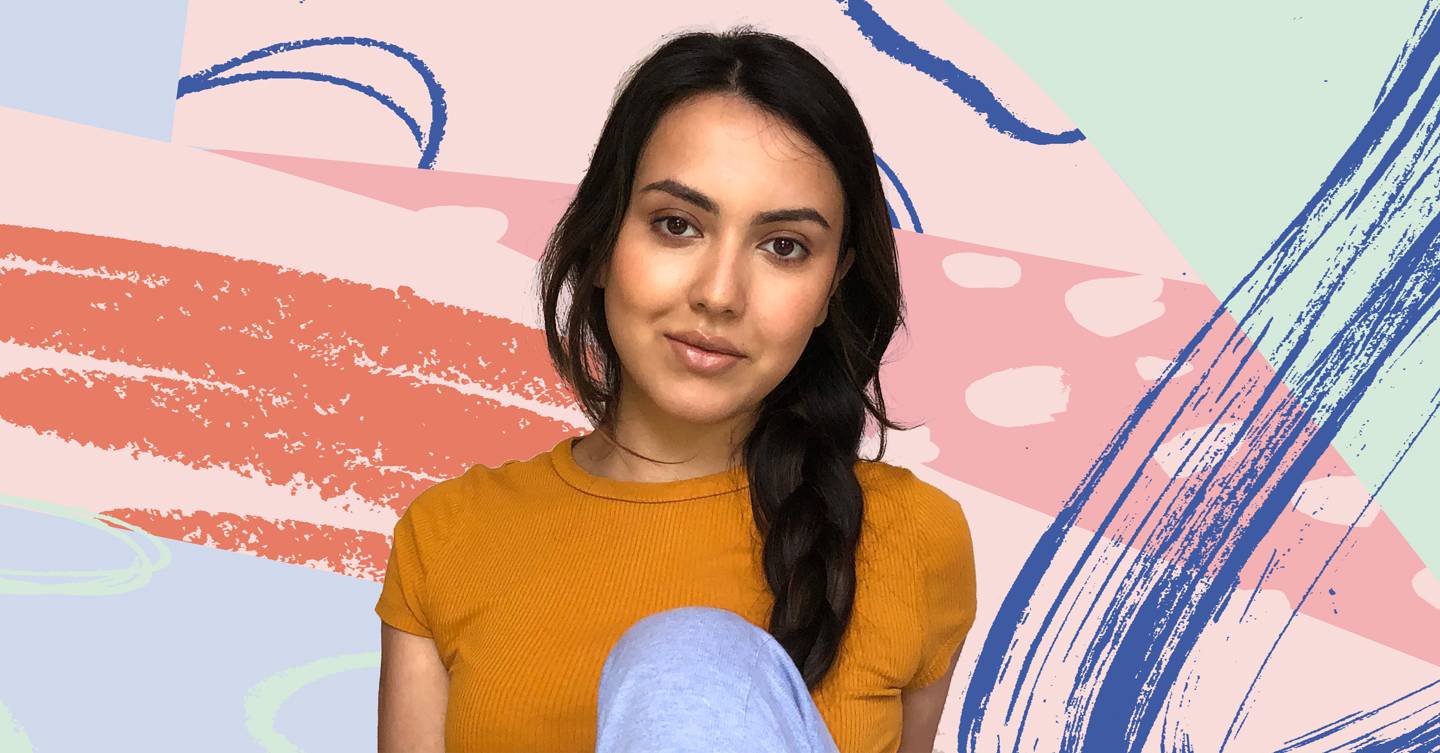This is the week where the conversation surrounding periods finally got real. Feminine care brand Essity launched an incredible, relatable ad called ‘Womb Stories‘ to show the true side of menstruation that women experience every day. And now, period-care brand Callaly have kickstarted their ‘The Whole Bloody Truth’ campaign – to reveal the raw, unfiltered experiences of all people with periods. The aim is to give a platform to those whose experiences of menstruation are so often overlooked, from transgender men to endometriosis sufferers to faith communities.
In fact, Callaly’s research found that 66% of people do not feel their experiences of periods are represented in the media, with a third feeling ‘forgotten, abnormal or inadequate’ as a result.
“The representation of periods in advertising is often just a white woman sitting on a sofa and smiling, and I’ve always thought it to be homogenising and limited,” says Ruqaiya Haris, influencer and spokesperson for the campaign. And she’s not alone; 55% of people think the media’s portrayal of periods is ‘too easy and carefree’ or ‘too glamourised’.
“As a Muslim woman, I think a lack of representation of faith communities leads to stereotyping and misunderstanding. We make up a large percent of the population, yet so little is known about our period practices and how it intersects with our faith.”
For Ruqaiya, it’s the assumption that her religion views menstruation as unsanitary or impure that is the biggest and most ignorant misconception.
“In Islam, you’re exempt from religious practices such as prayer and fasting when you’re on your period, and many people think that’s because the Muslim outlook on periods is that they’re shameful and dirty,” she says. “But I see it as the total opposite. For me, it’s a recognition that periods are tiring, demanding, and a drain on both your physical and mental health, so in Islam, you get a break. It’s liberating.”
The exemption from fasting when Muslim people are on their period can be an enormous relief during Ramadan.
“Observing Ramadan has become increasingly difficult for me as I’ve struggled with depression and anxiety,” Ruqaiya explains, “and fasting can really exacerbate those symptoms. “You’re not obliged to fast if you have any health issues that could be affected by it, but I found that decision incredibly difficult to make. It’s not like having a physical ailment; mental health is so intangible. So I tried fasting this year but I began to really struggle. Then my period came. It was such a relief that I could have a break, recuperate and have some time to myself, and I’m grateful to my religion for acknowledging my biological functions in that way.”
This isn’t to say that there isn’t period stigma in the Muslim community, but it’s the uninformed judgements society makes that is the problem.
“In the Asian and Muslim communities, periods aren’t spoken about that much but not necessarily always out of shame, but because it’s seen as impolite to discuss those sort of bodily functions,” says Ruqaiya. “Plus, period stigma exists in so many other cultures and communities, but it’s easy for people to single out Muslims because it feeds into a certain narrative that we are really regressive and backwards. And actually, when I was growing up, we didn’t speak about periods in my Pakistani household but we also didn’t speak about them at my posh, Christian private school either. When we did discuss periods in class, it was very clinical and medical. So it wasn’t just my ethnic or faith background where that conversation wasn’t encouraged.”
Does she think attitudes are starting to change? “A lot has changed in recent years and there are more progressive conversations around periods across all faiths and communities,” Ruqaiya explains. “People are starting to acknowledge that it’s not just women who have periods – trans people have periods, non-binary people have periods, and periods can be so horrific for people with conditions such as polycystic ovary syndrome.”
“But we still have a long way to go. That’s why I want to see more representation of and discussions around people of faith and their experiences of periods, and how they coexist with our worship. The more our stories are told, the more we can break down harmful stereotypes and stigmas.”
